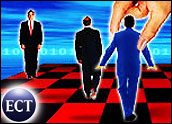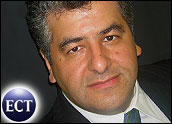
The upcoming turning of the calendar to January of 2006 brings more than a new year. It also marks the start of what some say is the most sweeping demographics change to hit the American workforce since World War II. That’s because during 2006, the first of the Baby Boomer generation will turn 60 years old.
That in turn represents the beginning of a major shift in the U.S. workforce, with millions of workers set to retire in the next decade-plus as the Baby Boom generation — those born between 1946 and 1964 — step away from full-time work.
Many employment experts warn that as the U.S. population as a whole ages, there may not be enough younger workers to replace those who will retire and that even massive productivity gains made in the past decade may not be enough to make up for the lost labor and talent. In fact, by 2010, more than 25 percent of the U.S. working population will be at or near retirement age.
Passing on Knowledge
The problem is especially acute at the top. A survey by Fortune found that one of every five Fortune 500 CEOs was at or past retirement age for their companies. But to many companies, especially those in the technology field, the bigger risk may be the potential loss of knowledge that could go out the door with those retirees. The majority of companies, meanwhile, aren’t preparing for that inevitability.
A recent survey by consulting firm Accenture found that fewer than half of the organizations it looked at had formal knowledge-transfer programs in place. And a third of those that did were seen having short-term programs that may not be enough to capture the depth of a retiring workers’ critical knowledge.
“If they don’t act soon, organizations will face a major exodus of institutional knowledge,” said Kathy Battistoni, a partner in Accenture’s human performance practice. “Companies must undertake workforce development and training initiatives to capture knowledge and minimize its loss.”
A recent report from the Conference Board underscored the emerging situation and said that many businesses may find themselves “scrambling” for solutions when the age crunch hits its peak in a few years.
Experts say the good news is that corporations are starting to awaken to the need to begin securing and transferring that knowledge and that careful planning and follow-through can keep the most critical knowledge where it belongs.
Planning Ahead
Battistoni suggests companies start by evaluating what knowledge is most important to keep. It may be technical knowledge or it may be information about a customer account or even know-how about what sales approach works best with a certain client.
“Companies should take three critical steps to meet the challenge of transferring knowledge from retiring employees,” said Battistoni. “The bottom line is that leaders in this arena know that capturing critical workforce knowledge and skills can’t be left to chance.”
David DeLong, a researcher at the Age Lab at the Massachusetts Institute of Technology and the author of the book Lost Knowledge: Confronting the Threat of an Aging Workforce, said the problem is not a new one.
“But its significance has taken a quantum leap in the last generation,” he said. In fact, those retiring or nearing retirement age are in many cases the first generation of workers to be deeply immersed in technology.
“The proliferation of computer technologies has not only produced advances in knowledge in all technical and scientific fields, but also work processes have become much more integrated and interdependent, creating all kinds of new knowledge needed to make things work,” DeLong added. “And this is not knowledge that managers can afford to lose if they expect to sustain, much less improve, performance levels.”
DeLong said the implications can be far-reaching and go well beyond the walls of individual corporations or their stock prices on Wall Street. For example, he said it’s not impossible for all those with first-hand knowledge of how to disarm an older nuclear weapon to have sailed into the sunset, or people with the ability to maintain legacy computer systems.
He added that one reason organizations have not addressed knowledge loss in the past is the difficulty of tackling such a complex problem. That is starting to change, with companies devising a number of different strategies to tackle the problem.
Taking Steps
John Challenger, CEO of Challenger, Gray & Christmas, an outsourcing firm, said many companies are trying to buy time with their older workers, offering flexible schedules, additional vacation time and other perks to forestall retirement.
“We will likely see more and more employers taking such measures to retain their experienced workers,” he said. “They are valuable due to the fact that they have the deepest knowledge and understanding of the company’s methods, products, services and customers.
Other ideas include a phased, or gradual approach to retirement, with workers cutting back to part-time for a stretch before they finally leave and their replacements or subordinates using that time to absorb the key knowledge of the retiring worker.
Accenture’s Battistoni said there are technology solutions as well that should be considered as part of any well-rounded knowledge capture program. “These programs can help capture critical information and distribute it directly to employees’ desktops,” she said.
Said Challenger: “Companies that simply let these workers go will probably find a significant decline in the level of customer service and may even find some customers taking their business elsewhere.”























































Social Media
See all Social Media